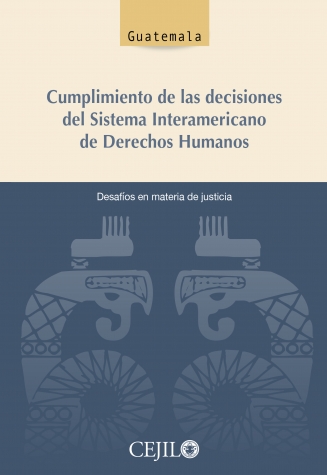






Multiple protection bodies and international organizations have pointed out the current structural pattern of impunity in Guatemala that has obstructed the fulfillment of the investigative duty. The high levels of impunity combined with violations to judicial independence and actions that seek obstruction of justice have resulted in the State’s failure to investigate and punish major human rights violations such as those committed during the internal conflict. These factors continue to be obstacles to obtain justice for violations committed in the present.
The cases that individuals and groups have submitted to the Inter-American System of Human Rights have made possible for the Inter-American Court of Human Rights to order measures to repair the damage caused and to avoid the repetition of similar events. However, important challenges still prevail in order to achieve full compliance by the State; Victims continue their pleads and their work for justice.
In this context, in our publication “Compliance on the Inter-American Human Rights System’s decisions: challenges regarding justice”, we analyzed 15 of the sentences issued by the Inter-American Court until 2014, which reflect the widespread practice of enforced disappearances, torture, extrajudicial executions and massacres, and the factors that have gotten in the way of justice for these crimes in Guatemala. Throughout the document, from the Center for Justice and International Law (CEJIL), we studied the different types of reparation measures ordered by the Inter-American Court and analyzed the consequences that the lack of compliance has on the victims and society; At the same time, we present inputs that would allow us to urge compliance with these measures. The struggle for justice of the severe violations of human rights committed in the armed conflict is the current struggle for the strengthening of the rule of law.
Help us continue this critical and urgent work with a donation!
DONATE NOW